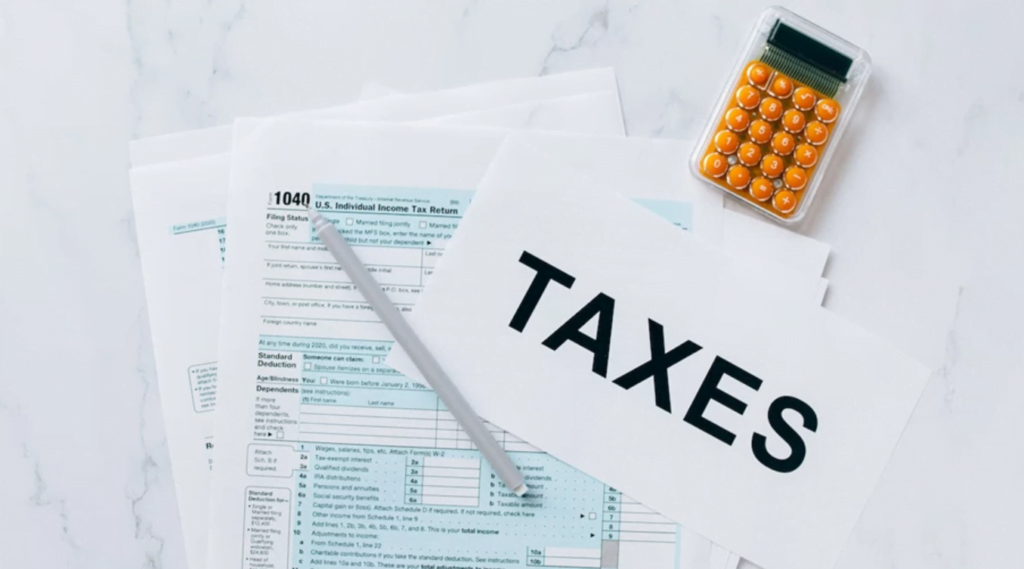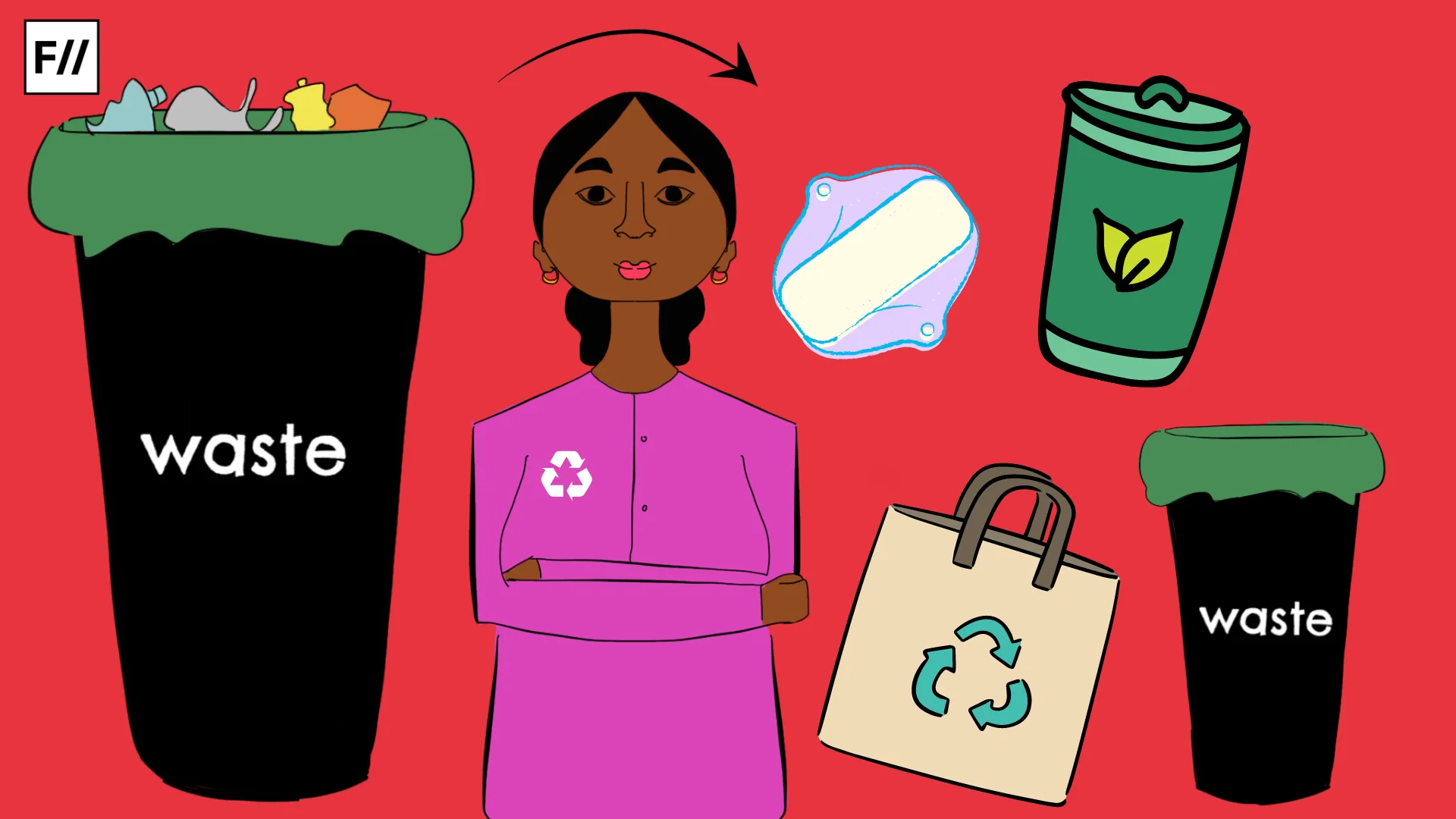Sheela*, 35 years old, took a deep breath as she stared at the income tax forms laid out in front of her. The numbers and jargon seemed like an indecipherable code. As a working professional supporting her family, she knew how crucial it was to file her taxes accurately. Yet, she felt lost in the labyrinth of rules and regulations.
Her husband had tried explaining some of the basics, but it only added to her confusion. ‘Why something so fundamental is taught predominantly to men?‘ she wondered. Sheela realised that her lack of financial literacy, especially regarding taxation, was holding her back from maximising her earnings and securing her family’s future.
This predicament faced by countless women in India underscores a deep-rooted and often overlooked form of gender inequality – the divide in financial knowledge and skills. While policies aim to boost women’s participation in the workforce and entrepreneurship, a critical enabler is frequently neglected: equipping them with competencies in money management, investment planning, tax optimisation, and financial decision-making.
Sheela’s story is a microcosm of the challenges women encounter while navigating the deep-rooted gender disparities to pursue financial education, awareness and inclusion. The adverse impacts of this inequality permeate both economic and social spheres, diminishing the potential of half the nation’s population.
Despite laudable initiatives like the Pradhan Mantri Jan Dhan Yojana boosting financial inclusion, gender gaps in basic money management skills persist. As per the latest National Financial Literacy and Inclusion Survey, only 21 per cent of female and 29 per cent of male respondents are financially literate.
This lack of financial education among women has severe ripple effects. It hampers their ability to make informed money decisions, invest prudently, avail of government benefits, and exercise control over household finances. This compounds existing disadvantages faced by women in areas like employment, asset ownership, and entrepreneurship.
Financial illiteracy also exposes women to greater risks of exploitation through unscrupulous financial schemes, products with opaque terms, and misguided investments. Ultimately, it restricts their pathways to financial security and independence – key pillars of holistic empowerment.
With growing calls for inclusive, sustainable development, equipping women with financial skills is an economic and social imperative. From tax education and investment planning to digital financial services, prioritising female financial literacy can unlock boundless potential and unleash India’s true demographic dividend.
Why are many women still financially illiterate?
‘Even when I scored 97 in maths in class 10, my parents thought it would be good for me to study arts, saying “maths won’t get into her head.” But my brother was allowed to take science in class 12 even when he got 78 in maths!‘ says Sumita*, 25 years old.

Despite such gender biases, Sumita chose to pursue science, scored high, and is now going abroad to the US this year for a PhD in economics. Possibly, this is just an exceptional case but it speaks galore about how from the initial steps, the social norms limit one’s journey towards financial learning; thinking women, numbers, and calculations do not go hand in hand! Just trying to remember, who again is India’s current Finance Minister?
To begin with, enhancing women’s access to financial education encounters multifaceted challenges rooted in cultural norms, institutional barriers, and socioeconomic factors. The cultural context plays a significant role, as traditional gender roles in certain societies restrict women’s involvement in handling family finances, undermining their confidence and hindering their efforts to learn about personal finance.
Moreover, the lack of targeted financial initiatives and banking programs tailored specifically to women’s needs perpetuates their exclusion from becoming financially independent. Accessibility issues, such as the inconvenient location of banks, pose additional hurdles, particularly for women in rural areas. Inadequate awareness about available financial options and necessary steps further exacerbates the problem, often leaving women reliant on spouses or family members for investment and financial planning assistance. The less lucrative nature of financial services, characterised by high interest rates on loans, high fees for account maintenance, and low interest rates on savings deposits, discourages many women from utilising these services.
Fundamental factors like lower literacy rates among Indian women, lack of basic education and computer literacy, and insufficient financial resources due to economic dependence on male family members also contribute to the persistent challenge of enhancing women’s financial literacy.
Tax education: Demystifying processes and optimising benefits for women
A major area where lack of financial literacy severely disadvantages women is taxation. The complexities of income tax rules, filing processes, and available deductions/exemptions deter many from optimising their tax planning. This results in either overpaying taxes or missing out on legitimate benefits. Bridging this knowledge gap is crucial for women’s economic empowerment.

Tax education is crucial for empowering women in India, enabling them to navigate the complexities of taxation and optimise their financial benefits. Demystifying tax processes is essential for women entrepreneurs and professionals.
For instance, understanding the implications of the Goods and Services Tax (GST) can help women-owned businesses comply with regulations and claim input tax credits. The Indian government’s initiatives, such as the Startup India scheme, offer tax benefits and exemptions for eligible women-led startups, encouraging entrepreneurship.
Women employed in the formal sector can benefit from understanding tax deductions and exemptions under the Income Tax Act. Sections such as 80C, which allows deductions for investments in provident funds, life insurance premiums, and other eligible schemes, can help women optimise their tax planning.
Tax education should also encompass knowledge about filing returns, availing tax credits for investments in equity-linked savings schemes (ELSS), and understanding the implications of the new tax regime. By demystifying these processes and optimising benefits, women can take control of their financial well-being and contribute to the nation’s economic growth.
Strategies to promote women’s financial inclusion
1. To enhance financial inclusion for women in rural areas, it is recommended to increase the representation of female Business Correspondents (BCs), who are retail agents facilitating doorstep banking services. Since the inception of the BC model in 2006, it has emerged as the predominant delivery channel for financial services in India.
Women exhibit a preference for interacting with female BCs due to perceived approachability and trustworthiness. However, as of March 2022, less than 10 per cent of BCs are women. The BC model circumvents the challenges faced by women regarding mobility and literacy, thereby promoting financial inclusion.
2. A significant barrier restricting women’s access to formal financial services is the lack of capability to conduct transactions. Women are less likely to own mobile phones, which impedes their acquisition of digital financial skills. Policy initiatives focused on digital literacy and skill development, such as the National Digital Literacy Mission launched in 2014, exemplify how the private sector and civil society organisations can collaborate with the government to promote digital literacy among women.
3. In India, self-help groups (SHGs) have traditionally played a crucial role in facilitating financial inclusion for women through the SHG-Bank Linkage Programme. The Bank Sakhis programme, an initiative by the National Rural Livelihoods Mission, trains SHG members to work as BCs in rural districts, thereby enhancing women’s exposure to financial services and driving rural transactions.
SHGs can also be leveraged to establish financial literacy centres for women. Furthermore, livelihood and skill development programs offered by SHGs can be integrated with other initiatives aimed at promoting digital financial inclusion for women.
4. India, as a member of the Alliance for Financial Inclusion (AFI), a policy leadership alliance led by central banks and financial regulatory institutions, has pledged to close the gender gap in financial inclusion by implementing the Denarau Action Plan adopted in 2016.
One of the commitments under this Plan is to promote best practices in collecting, analysing, and utilising sex-disaggregated data to foster financial inclusion for women. India can adopt this as a policy objective.
5. India has between 13.5 and 15.7 million women-owned enterprises, with up to 95 per cent being micro-businesses. Women-led businesses in India face a substantial credit gap due to social biases exhibited by financial institutions in assessing their creditworthiness.
Additionally, limited access to assets and property hinders women’s ability to obtain collateral. Fintech can play a role in promoting unbiased digital lending to women-led enterprises, thereby facilitating formalisation and increasing the visibility of women’s contribution to the economy.
Closing the financial literacy divide
Hence, true financial independence for women goes beyond just earning an income. It necessitates mastering the art of prudent money management, optimising savings, and unlocking the full potential of tax incentives. By diligently educating themselves on tax processes, deductions, exemptions, and investment strategies, women can take control of their financial destinies.

Understanding the intricacies of income tax not only ensures compliance but also prevents monetary losses and missed opportunities. It empowers women to channel their hard-earned income strategically, fueling wealth creation through judicious investment decisions and maximising tax benefits. Proactively planning household finances by splitting investments, leveraging deductions, and capitalising on tax provisions becomes the key to collective prosperity.
As India progresses toward a more equitable society, prioritising female financial literacy through tax education is an investment in the nation’s future. It catalyses economic independence, fosters social mobility, and puts women in the driver’s seat of their financial journeys. By demystifying taxation and embracing a savings-oriented mindset, women can truly soar, shattering glass ceilings and realising their full potential as equal stakeholders in India’s growth story.
*Names have been changed to maintain confidentiality.






